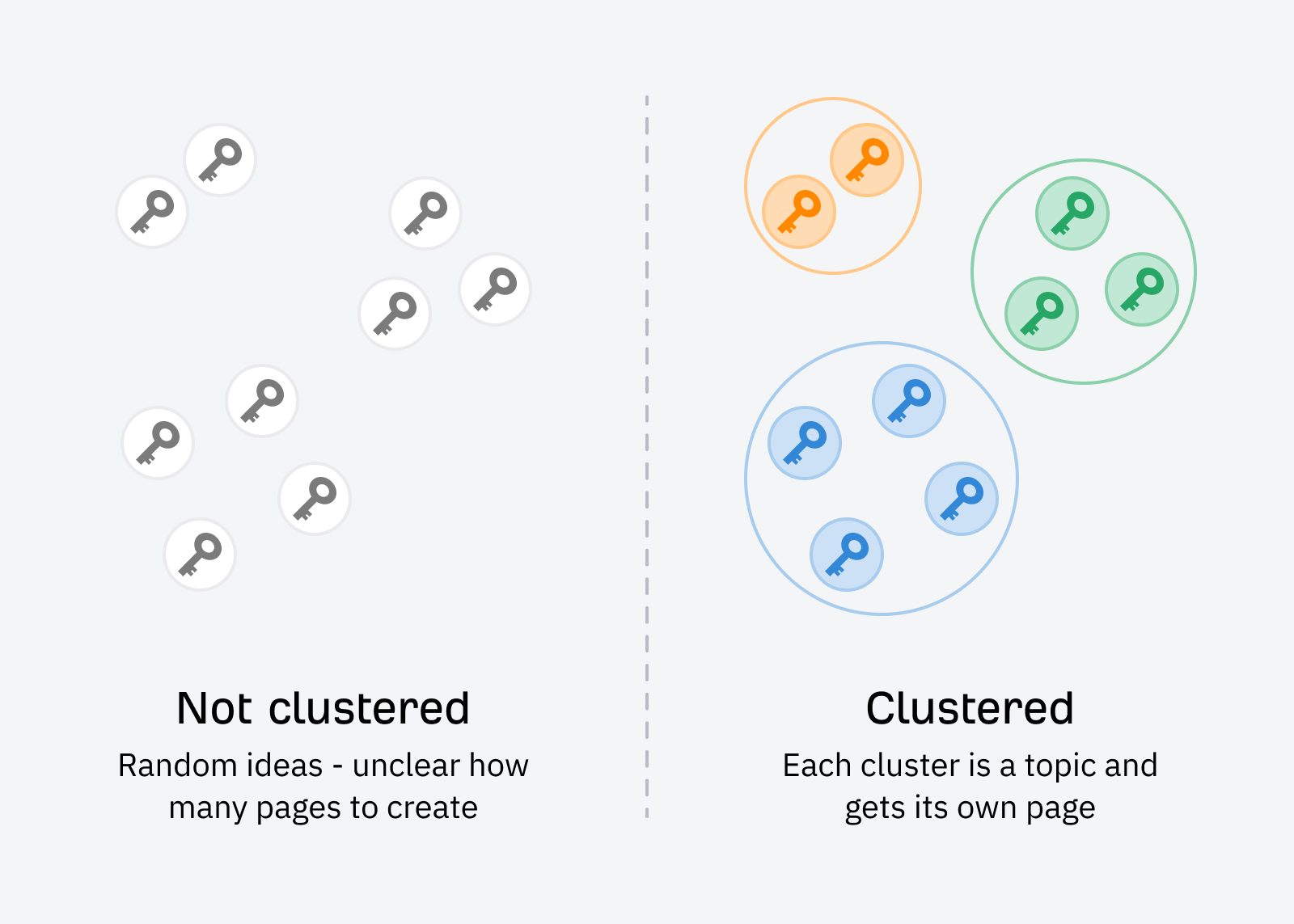Why use keyword clustering
One of the most powerful SEO tools is keyword clustering. It is a process of structuring similar queries and combining them into groups. This approach simplifies site optimisation and speeds up work on the semantic core. In addition, clustering contributes to a better resource ranking, as Google algorithms respond well to it.
Advantages of using keyword clustering
The essence of clustering is to divide keywords into groups, and the queries in different categories should be as diverse as possible and in one – similar. This selects keywords according to their relevance and eliminates those that do not play a significant role in ranking.
Clustering also helps:
– increase the effectiveness of internal linking, which helps to keep visitors engaged;
– think about linking, which gives Google robots information about which pages on the site have priority;
– improve the structure of the site, breaking down large categories into subcategories, which makes it easier to find the right topic, making the resource more convenient for users;
– select the most relevant words and phrases and use them as a basis for promotion;
– create an effective landing page to increase traffic.
It is worth noting that the basis for collecting the semantic core and clustering is understanding the target audience. It is necessary to analyse what words visitors use to find the site in search. It is also required to pay special attention to the queries with which users search for the desired product or topic on the resource.

Types of keyword clustering
There are two main types of keyword clustering:
1. By lemma. It is the original form of a word, and in this case, the keys are a combination of morphological and semantic similarity.
2. By SERP. It’s a page which the search engine generates for the user’s query.
In most cases, specialists use automatic clustering, which saves time in the routine process. Services that provide this service use machine learning technology, which makes the clustering process much more accurate than manual selection. After clustering, it is much easier to work with keywords. They can form phrases on which the content plan is based. However, you should pay attention to words that have multiple meanings. In the case of automated clustering, they may fall into random categories. It is, therefore, important to carefully analyse words in groups to avoid problems with such keys.
Several services are available for keyword structuring, each with a different approach. For a more in-depth analysis, a combination of services may be appropriate.
